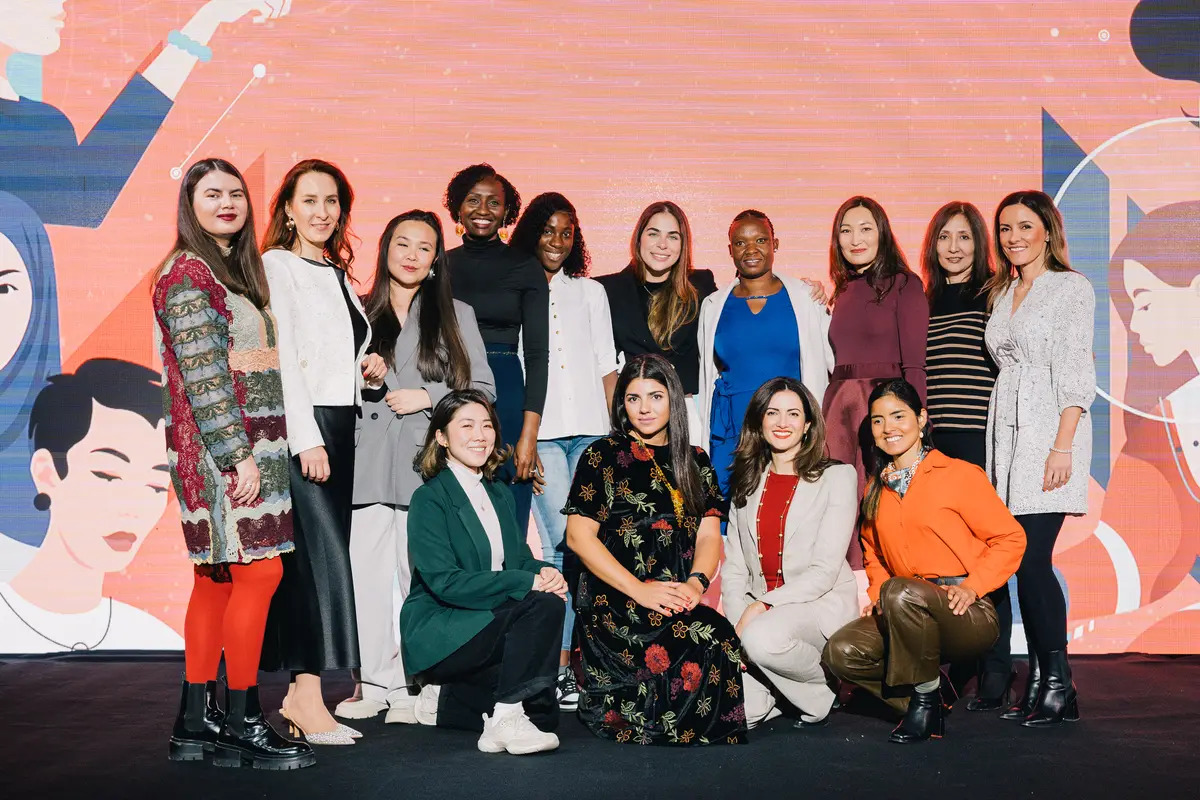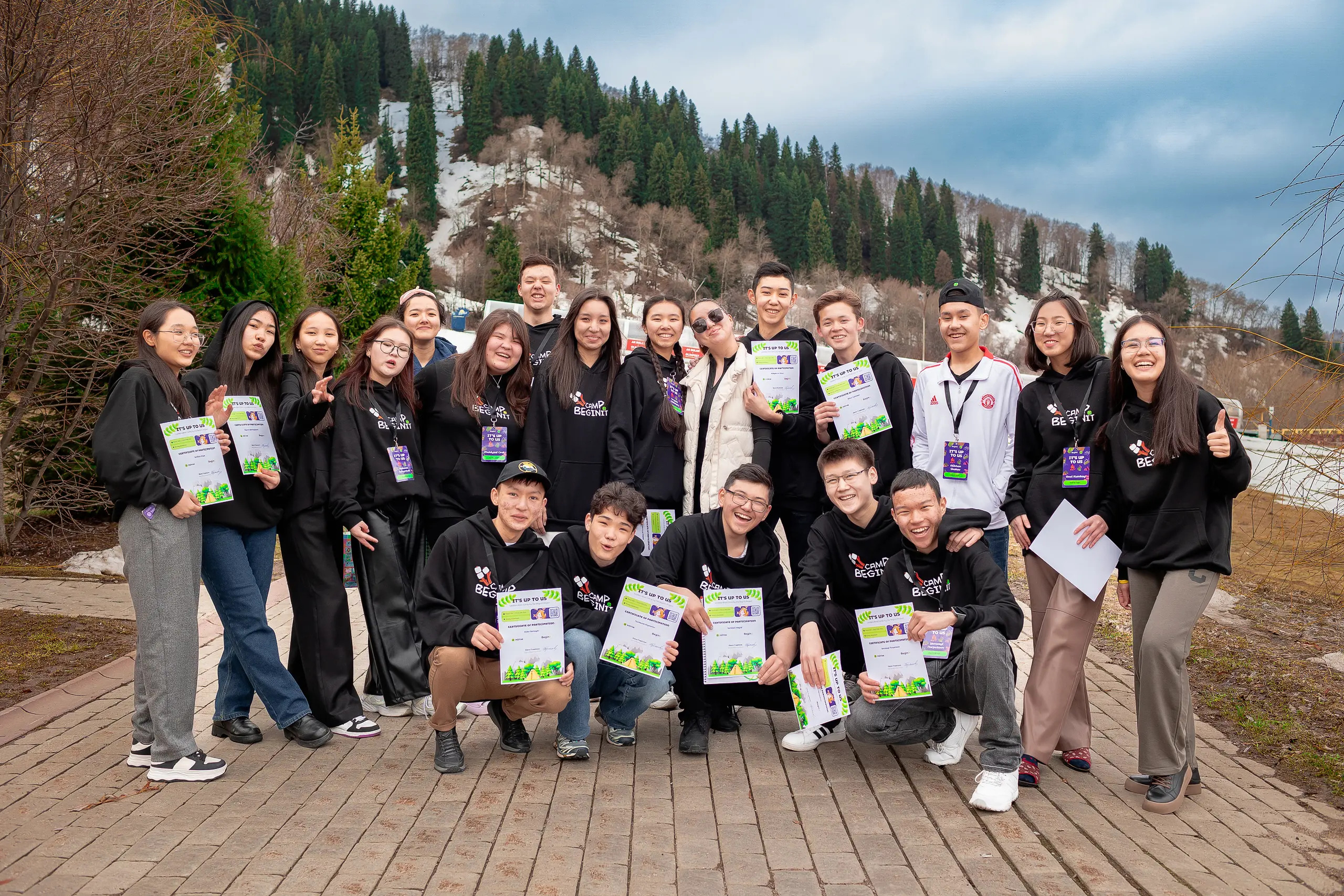ASTANA — inDrive, formerly known as inDriver, was rebranded in 2023 to reflect its commitment to social impact. Founded on principles of justice and independence, the company aims to make education, creative industries, startups, and sports accessible to all, challenging resource inequality. Aray Bekembayev, the country business manager of inDrive for Kazakhstan, shared the company’s dedication to promoting equal access across these fields in an exclusive interview with The Astana Times.

Aray Bekembayev, the country business manager of inDrive for Kazakhstan. Photo credit: The Astana Times / Nagima Abuova
Since April, Bekembayev has led inDrive’s strategy in Kazakhstan, overseeing urban and intercity travel, freight, courier and B2B services.
Founded by Arsen Tomsky, inDrive has operated in Kazakhstan since 2014 and seeks to “challenge injustice to make the world a better place for a billion people by 2030.” Central to this mission is the InVision hub, a social arm designed to reduce resource inequality. Bekembayev described InVision as a platform supporting initiatives in 21 countries, ranging from free education and tech awards to sports programs for children in remote regions.
In 2022, the company withdrew from Russia and relocated to Kazakhstan.
“With one of the largest hubs in Kazakhstan, our employees collaborate with international markets from within the country, allowing for continuous knowledge sharing. Internally, InVision reflects our shared values and commitment to performance, emphasizing that we operate as one cohesive team,” said Bekembayev.
Innovative initiatives address resource inequality
The inVision initiatives, including Beginit, University, Aurora Tech Award, Underdog Tech Award, Alternativa Film Project, Supernovas, YourPace, and new upcoming projects, embody inDrive’s core mission to give back by providing tools, knowledge and resources.

Aurora Tech Award 2024. It is a prestigious annual prize celebrating women founders of IT startups. Photo credit: inDrive
“As the country manager for Kazakhstan, my role is to identify synergies for business development while also advancing these social projects. We leverage partnerships with major companies, including discussions, for example, with Halyk Bank for potential collaboration on the Almaty Air initiative, which aims to combat air pollution in the city,” explained Bekembayev.
inVision aims to eradicate inequality and injustice, closely aligning with inDrive’s goal of addressing issues arising from traditional transportation providers known for unfair pricing practices. The company facilitates direct negotiations between drivers and passengers, empowering individuals to determine their own prices. This model is also applied to their social projects, reinforcing their commitment to equitable solutions.
“This social focus is integral to our business, shifting the narrative from solely transportation to meaningful societal impact. As these programs expand, we aim to keep empowering individuals with resources that drive personal and professional growth, always holding inVision as central to inDrive’s purpose,” said Bekembayev.
Empowering youth through education and recognition
The Beginit program, a longstanding initiative, aims to develop leadership and social entrepreneurship skills among children, as well as to form partnerships with regional educational institutions.
Bekembayev noted that the core focus of Beginit is ensuring that every participant benefits—whether or not they secure a grant, students leave with new connections, training, or other forms of support to aid their journey.
“The main key performance indicator (KPI) focuses on ensuring that each participant gains a sense of achievement, understanding that participation itself is a meaningful step on their journey. This approach helps them view the experience as progress toward their goals, building resilience and confidence for future endeavors,” said Bekembayev.

Beginit program, an initiative for develop leadership and social entrepreneurship skills among youth, as well as to form partnerships with regional educational institutions. Photo credit: inDrive
While Beginit focuses on social leadership skills among youth, the Aurora Tech Award expands this mission by supporting women entrepreneurs in IT, a group often underrepresented in the tech industry. With this global award, inDrive addresses gender inequality by recognizing the achievements of women-led tech startups, particularly those creating solutions for social or environmental issues.
When asked about progress for women in tech, Bekembayev noted that inDrive not only observes this positive trend but actively supports it through social initiatives and by promoting gender diversity within its own team.
“We have over 800 people working across our Kazakhstan offices, including two in Almaty and a smaller one at Astana Hub. While a substantial portion of our team is female, we are working to increase this number,” said Bekembayev, reinforcing inDrive’s commitment to fostering diversity and innovation.
Fostering team spirit with football programs
Supernovas by inDrive is a nonprofit football initiative that provides training sessions for children in small communities, focusing on remote locations.
“We rent available fields and collaborate with local coaches and the Kazakhstan Football Federation. This partnership ensures our training techniques and coaching standards are among the highest in Kazakhstan, offering children the same quality of instruction that professional players receive,” said Bekembayev.

Supernovas by inDrive is a nonprofit football initiative that provides training sessions for children in small communities, focusing on remote locations. Photo credit: inDrive
Bekembayev noted that the program is designed to foster team spirit over competition, encouraging children to participate for the joy of sports rather than rivalry. Supernovas cover all expenses for equipment, uniforms and other essentials, ensuring every child can benefit from team sports. An online platform is also available for coaches, providing them the opportunity to earn certification from the football federation.
“While some coaches contribute on a volunteer basis, not all can work entirely for free. For certain projects, we cover expenses using our own resources. We organize training sessions for coaches, bringing them to various regions to educate young players. These coaches then travel back to their local areas to continue their teaching,” said Bekembayev.
inVision U: A new educational frontier in Kazakhstan
Another project underway by the inDrive’s CEO is the inVision University in Almaty. This institution aims to provide an educational experience on par with top institutions, such as Berkeley. Bekembayev noted that while not all students can study abroad, this university will offer high-quality education within Kazakhstan.
During a meeting with the Prime Minister of Kazakhstan, Olzhas Bektenov, on Sept. 5, Tomsky proposed the establishment of inVision University, which will have 400 places available for training qualified specialists in various fields, including IT, education, science and the arts, to address a pressing need of educational grants in Kazakhstan.
“The university is in the planning stages, with hopes to launch next year, and will cater not only to Kazakh students but also to individuals from Central Asia,” said Bekembayev.
He noted that the education at inVision University will be entirely grant-based, ensuring that students can receive an education without the burden of tuition fees. All costs, including housing, will be covered, making this a significant non-commercial project to foster talent in the region.
“To support this project, we have brought in Andrew Wachtel, an experienced educational manager who played a key role in establishing the American University of Central Asia (AUCA) in the Kyrgyz Republic,” said Bekembayev.
Transforming lives with AI solutions for speech disorders
During the first Asia-Pacific Ministerial Conference on Digital Inclusion and Transformation from Sept. 3-5, Tomsky announced the launch of a new AI startup designed for people with speech disorders. When asked about the details of this announcement, Bekembayev noted that though inDrive employees have had the unique chance to witness the startup’s development and impact firsthand, this project remains Tomsky’s personal initiative.
“Tomsky, as some may know, has struggled with a stutter since childhood. For him, it is not only a personal issue but a social one. He understands the challenges that come with speech disorders, especially how they can impact people’s confidence in both professional and social settings,” said Bekembayev.
While studying at Stanford and living in the U.S., Tomsky began developing this AI-based technology with a team of developers. The tool enables individuals with speech disorders to speak fluently using a neural network that analyzes and corrects their speech in real-time. When someone uses this technology in a meeting or on a call, it is designed to make their speech sound fluid and natural. On the other end, the listener hears normal, uninterrupted speech, creating a seamless experience as if there were no speech disorder.
“We have seen the technology in action, and it is truly impressive. There is no noticeable delay—it is as if the speaker does not have a speech issue at all. The effect is incredibly organic and realistic,” said Bekembayev.
“As it progresses, it may eventually become part of the broader inVision project once Tomsky is confident in its scalability. For now, though, it remains a Minimum Viable Product (MVP) under development,” added Bekembayev.
